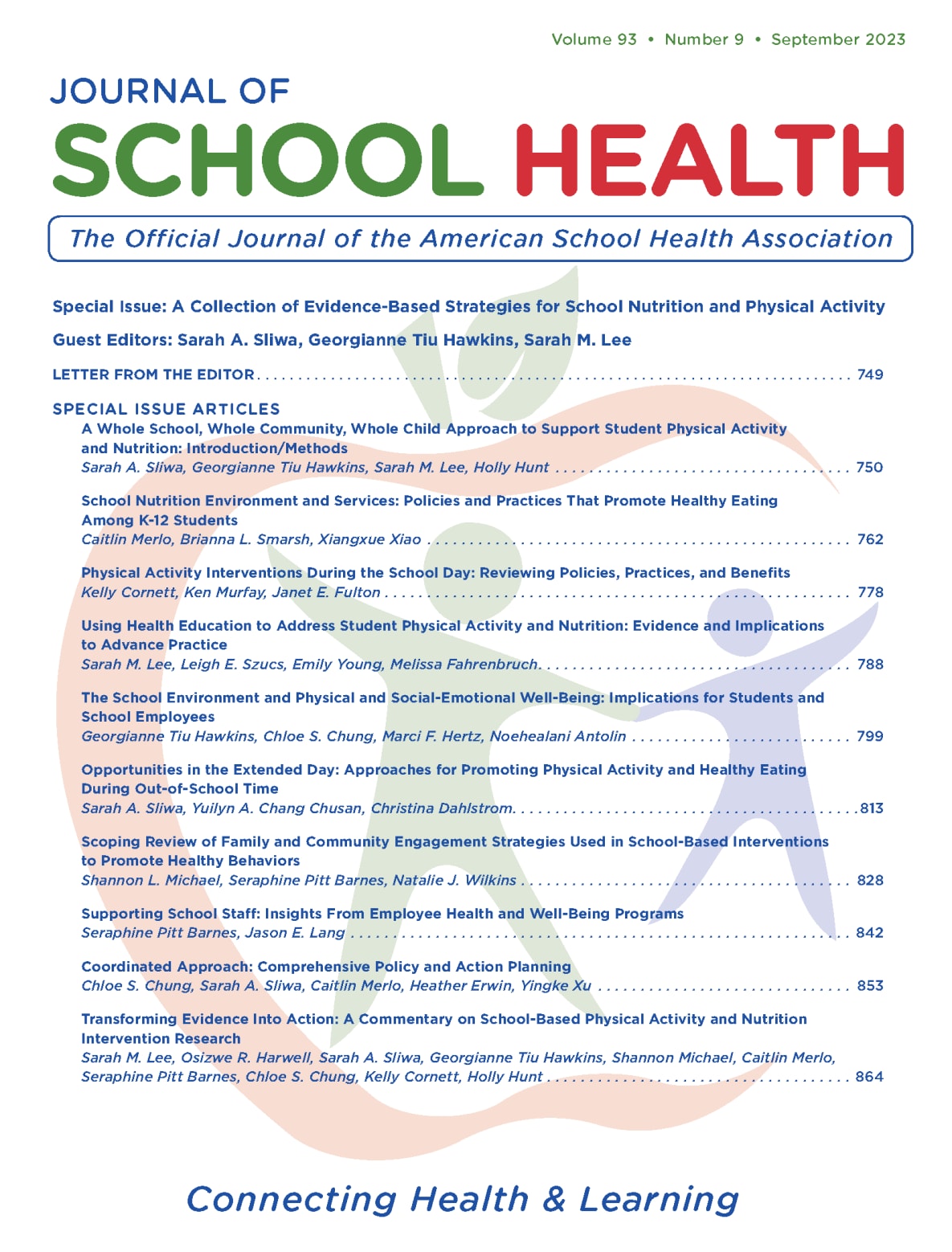Collection of Evidence-Based Strategies for School Nutrition and Physical Activity
CDC has published a collection of peer-reviewed articles that present a decade of school-based physical activity (PA) and nutrition intervention research conducted across multiple Whole School, Whole Community, Whole Child (WSCC) components. This research is presented in a special issue of the Journal of School Health titled, “Collection of Evidence-Based Strategies for School Nutrition and Physical Activity.”
In this special issue, CDC identifies evidence-based strategies that district and school leaders can use to improve the nutrition and PA environments. These strategies affect student and school staff PA and nutrition knowledge, attitudes, perceptions, and behaviors. Several school health practices highlighted in the issue include low and no-cost PA and nutrition strategies to advance health equity. Below is an overview of the research and strategies presented in eight separate articles:
Health education, physical education, and classroom teachers can apply the evidence-based strategies in various ways, such as:
- Integrate PA and nutrition opportunities into classroom time.
-
- Provide classroom PA breaks that include activities to help students move.
- Integrate PA into course lesson plans.
- Practice yoga and mindfulness activities with students to help improve their focus and reduce anxiety and stress.
- Try hands-on, experiential learning, such as food taste tests.
- Engage students, families, and communities.
-
- Engage parents in school health activities to draw their support for instilling healthy behaviors at home.
- Gather input from students and families for the development of physical activity and nutrition programming.
- Engage community organizations and resources to support programming opportunities.
Resources that provide school staff, parents, and school groups (such as parent-teacher associations and organizations) ideas and strategies for working together to create a healthier school.
2020–2025 Dietary Guidelines for Americans
Science-based recommendations to instill good dietary habits among people aged 2 years or older that can promote health and reduce the risk for major chronic diseases.
Physical Activity Guidelines for Americans, 2nd ed.
Science-based recommendations to help people aged 6 years or older improve their health through physical activity.
Healthy People 2030 Topics and Objectives
Science-based, 10-year objectives for improving the health of Americans.

